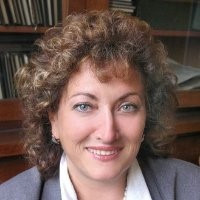Days after the bright Bulgarian holiday dedicated literacy, education and culture – May 24, we take a look at the language of our ancestors. For Bulgarians it is the personification of our national identity, the carrier of important symbolic and communicative functions. This is also shown by the results of a representative study of the public opinion towards contemporary Bulgarian literary language conducted by the Institute for Bulgarian Language and the Department of Bulgarian Language at the Faculty of Slavic Studies of the Sofia University.
 “For every Bulgarian, personal and community motivation for the observance of written literary norms is important,” Professor Krasimira Aleksova, a member of the team that conducted the study, says. “It was important for us to have feedback from all those who are interested in the modern Bulgarian literary language and the trends in it that affect some of the grammatical rules.”
“For every Bulgarian, personal and community motivation for the observance of written literary norms is important,” Professor Krasimira Aleksova, a member of the team that conducted the study, says. “It was important for us to have feedback from all those who are interested in the modern Bulgarian literary language and the trends in it that affect some of the grammatical rules.”
Researchers focused on spheres and situations where the most common mistakes occur. They checked whether Bulgarians approved substitution of Cyrillic with Latin or other symbols in informal communication and whether school remained one of the most important factors for compliance with the rules of writing. “Every language is evolving, so stability of rules is relative,” says Prof. Aleksova. “Therefore, it is important to see whether there was a transition from one state of a writing rule to another.”
“Respondents identify Bulgarian language as the most important factor of national identity. It is viewed as more important than such symbols as the flag, the coat of arms, anthem, cultural and religious affiliation. It fulfills a function that unites us, integrates society, and at the same time differentiates us from other peoples. Two-thirds of the respondents are advocates of the idea of purity and richness of the Bulgarian language that must be preserved.”
The study also shows that Bulgarians assign to school the major task of educating young people. Therefore, this institution is considered one of the most important in enforcing literary norms.
“According to us, this is part of the long-standing views of Bulgarians on the particularly important place of school and role of the teacher. It is also interesting that two-thirds of respondents believe oral speech should follow the rules of the written form. This is because the written form is evidence of the existence of speech. Literary rules are taught intensively at school, although linguists have always known that innovations emerge in oral communication and we must undoubtedly also take them into account. Our colleagues are following very carefully the contemporary state of our language in order to make changes in written forms if necessary.”
In comparison to English or French where words are written according to etymological traditions, rules in Bulgarian language focus on morphology, which makes writing in Bulgarian less difficult to those studying it, professor Alexova also told us.
English: Alexander Markov
He does not accept the definition of "apostle" or "missionary", although for many he is exactly that - a messenger of God in the world, proclaiming His Word. He first became a priest in his native Vidin diocese, in Northwestern..
Over 80% of Bulgarians are expected to start using artificial intelligence in the next three years , across all age groups. Today, it is almost impossible to find a Bulgarian student who does not turn to ChatGPT when preparing homework. This..
Serbians around the world mark one year after Novi Sad tragedy On November 1, Serbians abroad will join the call of students in Serbia to mark the anniversary of the collapse of the canopy of the Novi Sad railway..
Under the motto "Responsibility, Unity and Security" on November 5 and 6, 2025, a German-Bulgarian seminar for journalists and public..
Everyone knows that as soon as temperatures start going down it is pickle-making season. Making preserves at home is a time-honoured and widespread..
The European Commission praise s Montenegro’s progress toward EU membership North Macedonia needs decisive action and reforms to begin..

+359 2 9336 661
